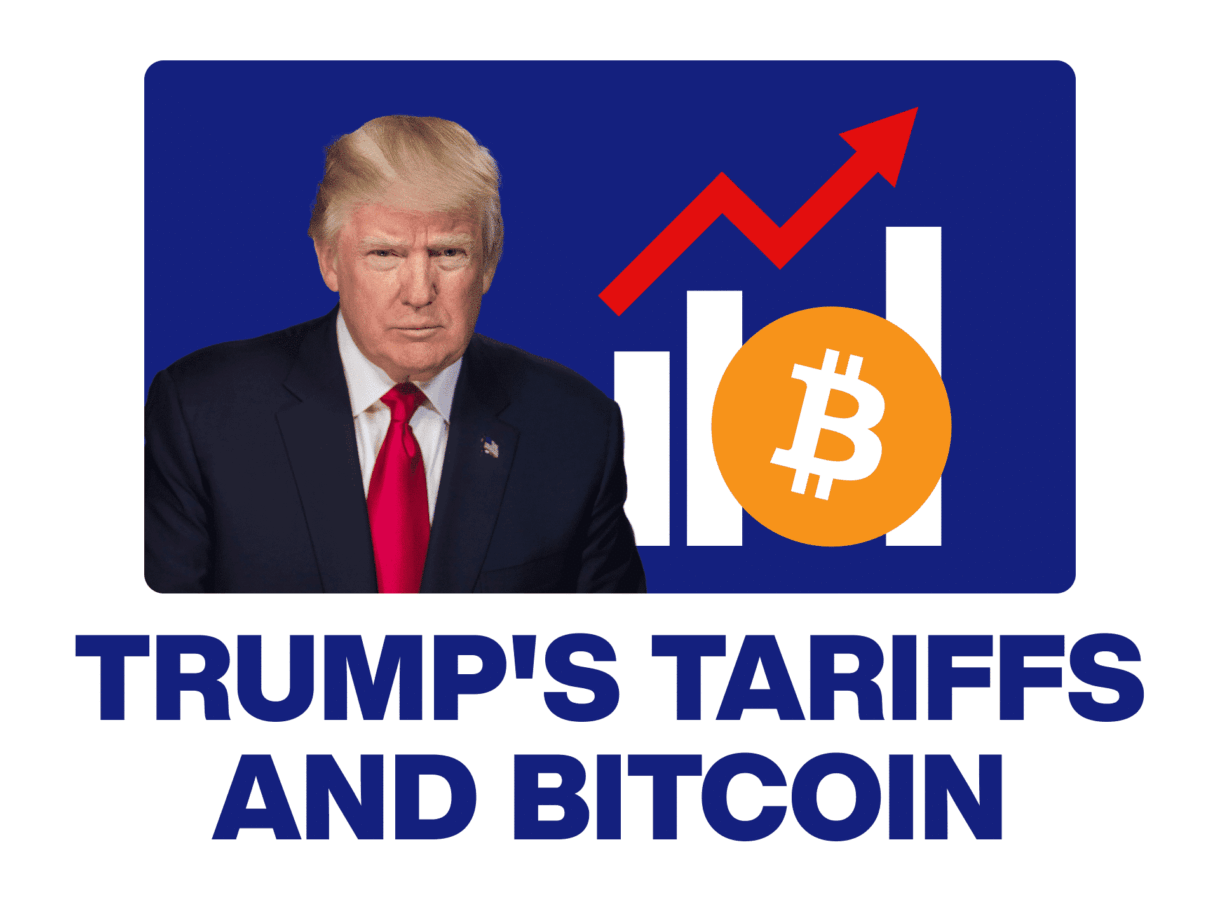The Bitcoin price is currently volatile, with thousands of US dollars rising and falling in a short period of time. The reason is that U.S. President Donald Trump has announced that he will significantly increase tariffs on Chinese goods. This has shaken not only Bitcoin but also the stock markets in the short term.
Nevertheless, this situation could be good for Bitcoin in the long term.
But why? Let us explain step by step.
What are tariffs?
A tariff is a tax levied on imported goods. So when the US buys goods from China, it now has to pay a lot more for them. This can strain the economy: companies have higher costs, products become more expensive, and trade between countries decreases.
Such conflicts are called “trade wars”. And that’s exactly what’s happening again – with consequences for global trade, the US dollar, and Bitcoin.
What does Bitcoin have to do with a trade war?
Bitcoin is a decentralized digital currency, which means it is not controlled by a state or a central bank—unlike the US dollar or the euro. That is precisely why many people see Bitcoin as a kind of “safe haven”—protection against economic uncertainty.
When the global economy falters or confidence in the US dollar declines, some investors flee to Bitcoin, which is similar to gold.
How could tariffs and a trade war help Bitcoin?
1. Loss of confidence in the US dollar
When the dollar weakens, investors look for alternatives, which could strengthen Bitcoin. Matt Hougan of Bitwise even says that in the future, we may no longer have just one world reserve currency (the dollar) but several—and Bitcoin could be one of them.
2. Bitcoin as “digital gold”
Many people now see Bitcoin as digital gold, especially in times of crisis. This is because Bitcoin cannot be simply printed and can be traded worldwide.
3. More interest in alternative forms of money
In uncertain times, more people are interested in non-state values like cryptocurrencies. Bitcoin is often seen as particularly secure and independent.
4. Interest rate cuts by the central bank could strengthen Bitcoin
The US central bank (the “Fed”) could lower interest rates when the economy weakens. This would put more money into the market – a situation in which Bitcoin has often risen sharply.
Why is the Bitcoin price falling instead of rising?
In the short term, many investors are reacting nervously. When bad news (such as trade tariffs) comes out, they often withdraw their money first—including from Bitcoin. This is called “risk aversion.”
But many experts say this is only short-term. In the long term, Bitcoin will even benefit from the current situation, especially if the dollar continues to weaken.
Why tariffs could be good for Bitcoin:
- Donald Trump has introduced new tariffs that are weighing on the economy.
- This weakens confidence in the US dollar.
- In such times, many investors are looking for alternatives – such as Bitcoin.
- Bitcoin is considered “digital gold” and could benefit from the uncertainty.
- Possible interest rate cuts by the US Federal Reserve could also boost Bitcoin.
- In the short term, the price fluctuates, but in the long term, experts see potential for Bitcoin.
Conclusion
The trade war creates uncertainty for Bitcoin in the short term. However, in the long term, this uncertainty could make Bitcoin more attractive. Especially if the dollar weakens and the central bank adopts a looser monetary policy.
Note: Relai services are exclusively recommended for residents of Switzerland and Italy. None of this content constitutes financial advice. Always conduct your own research before investing in digital assets.
FAQ
Why does a trade war affect the Bitcoin price?
A trade war, as we are currently experiencing it between the US and China, creates tensions on a global level. Investors become nervous because political decisions can directly impact the economy. In this uncertain environment, many people seek a stable store of value. That’s where Bitcoin comes in. Because Bitcoin is independent of governments and banks, some see it as a hedge against crises and political intervention.
What do people mean when they call Bitcoin “digital gold”?
The term “digital gold” comes from Bitcoin, which has similar properties. It has a limited supply, cannot be easily multiplied, and is accepted worldwide. Many people trust gold as a crisis currency, and the same applies to Bitcoin: in economically turbulent times, interest in alternatives outside of state control increases. For some, Bitcoin is a modern replacement for traditional gold – only it is digital, more easily tradable, and globally usable.
How do interest rate cuts by the central bank affect the Bitcoin market?
When the economy weakens – for example, due to a trade war – the US Federal Reserve may try to counteract this by lowering interest rates. Cheaper credit and more money in circulation should boost the economy. But at the same time, money loses value, which fuels concerns about inflation. Bitcoin becomes more attractive at such moments because it is inherently deflationary: there will never be more than 21 million Bitcoins. This makes it particularly interesting in a world of loose monetary policy.
Why does the Bitcoin price sometimes fall even though the situation seems favorable?
Financial markets do not always function rationally. When there is bad news or uncertainty, many investors initially withdraw their money from high-risk investments – and many still consider Bitcoin to be high-risk. This behavior is called risk aversion. Although Bitcoin could emerge as a long-term winner from the situation, short-term panic often leads to falling prices. However, experts point out that such fluctuations are normal and that, in the long term, the conditions for Bitcoin could even improve.
Is Bitcoin safe in times of crisis?
Safe is a relative term. Bitcoin is very volatile and can fluctuate sharply in the short term. However, many see it not as a speculative risk but a strategic hedge. Especially in countries with unstable currencies or high inflation, people are increasingly turning to Bitcoin to protect their assets. It offers the possibility to store and transfer value outside government control – which is already necessary in many parts of the world today.





